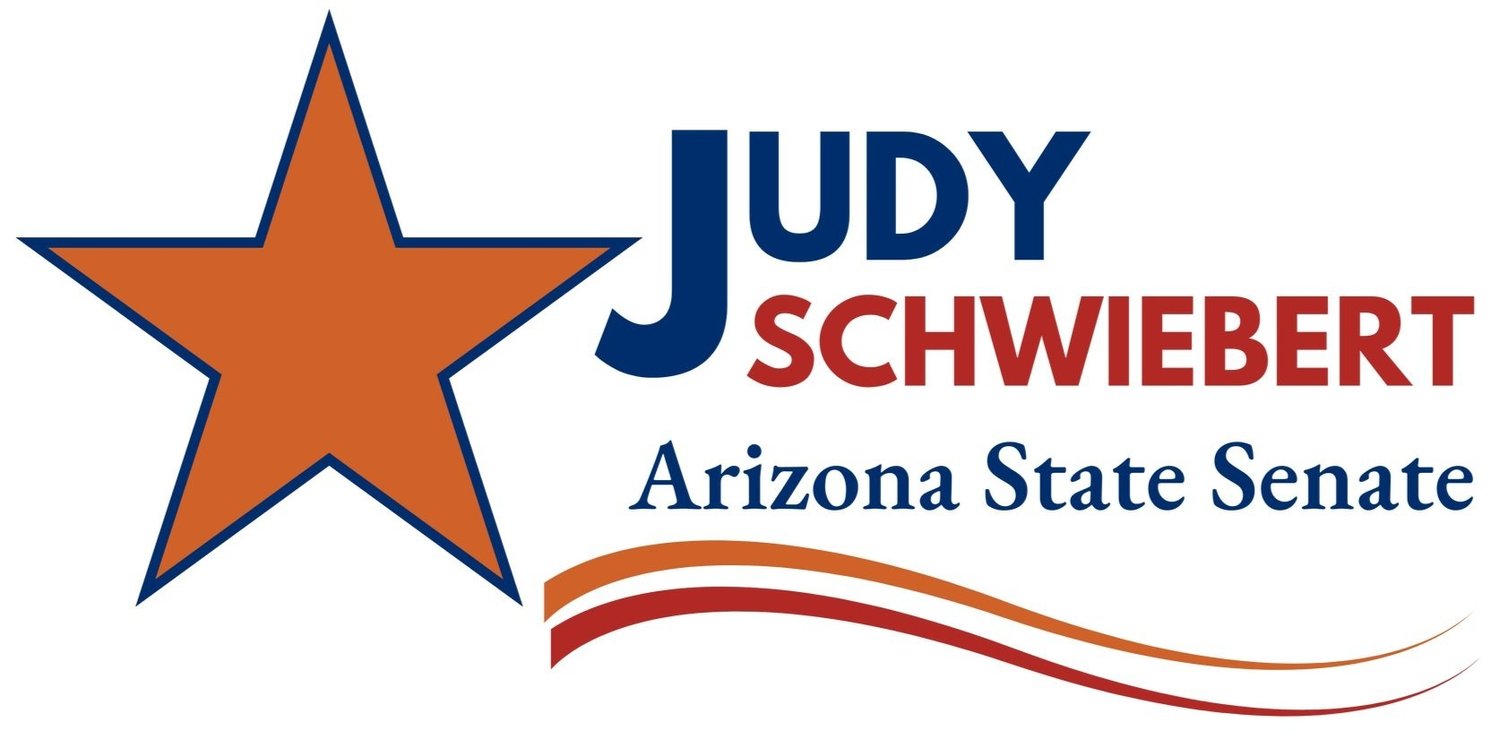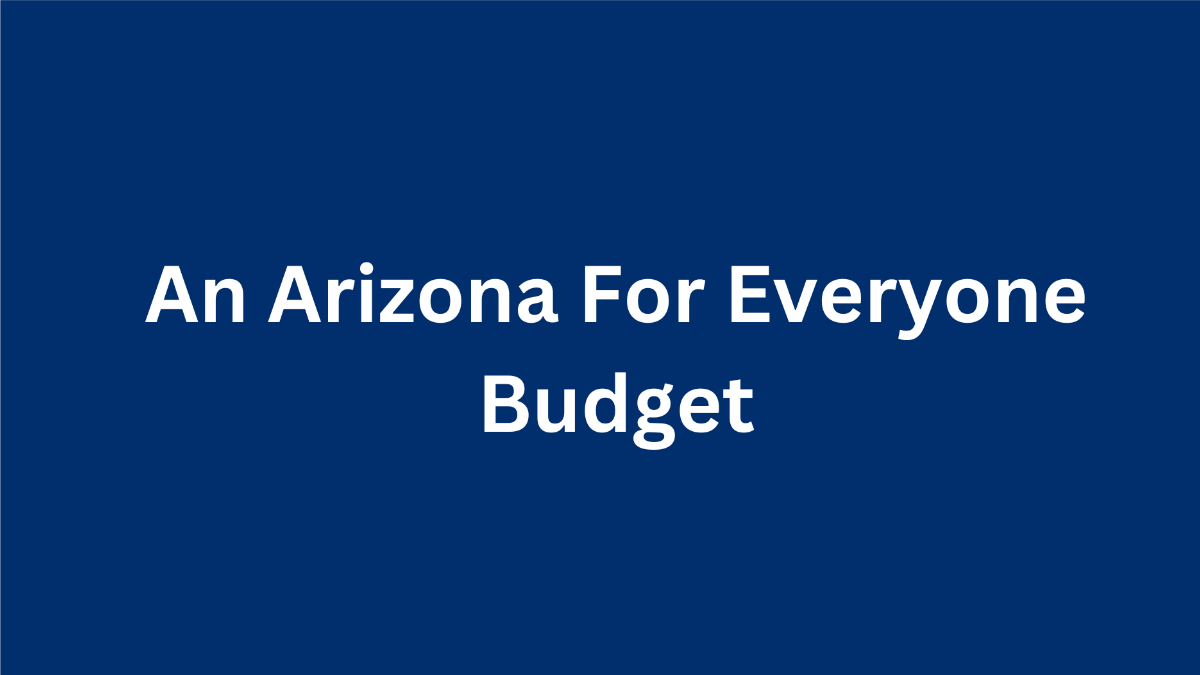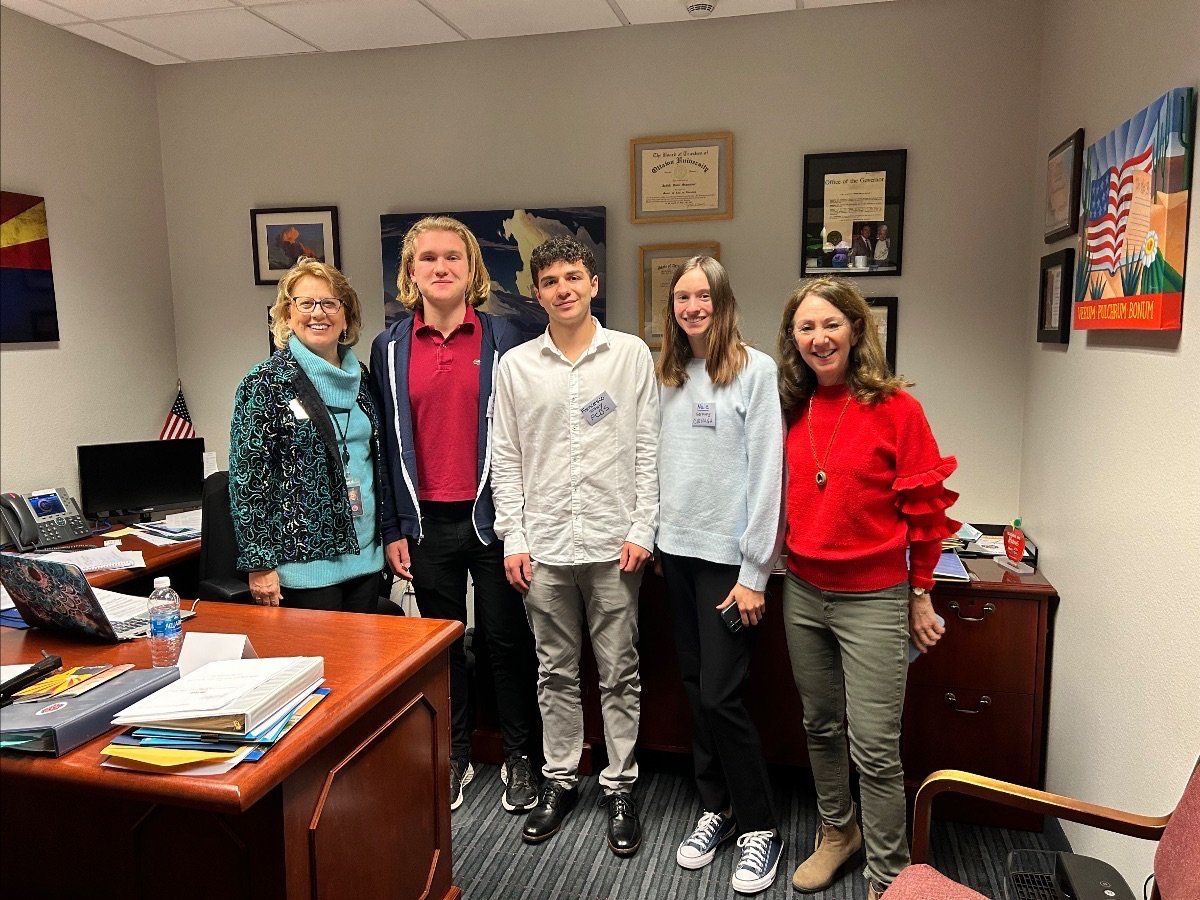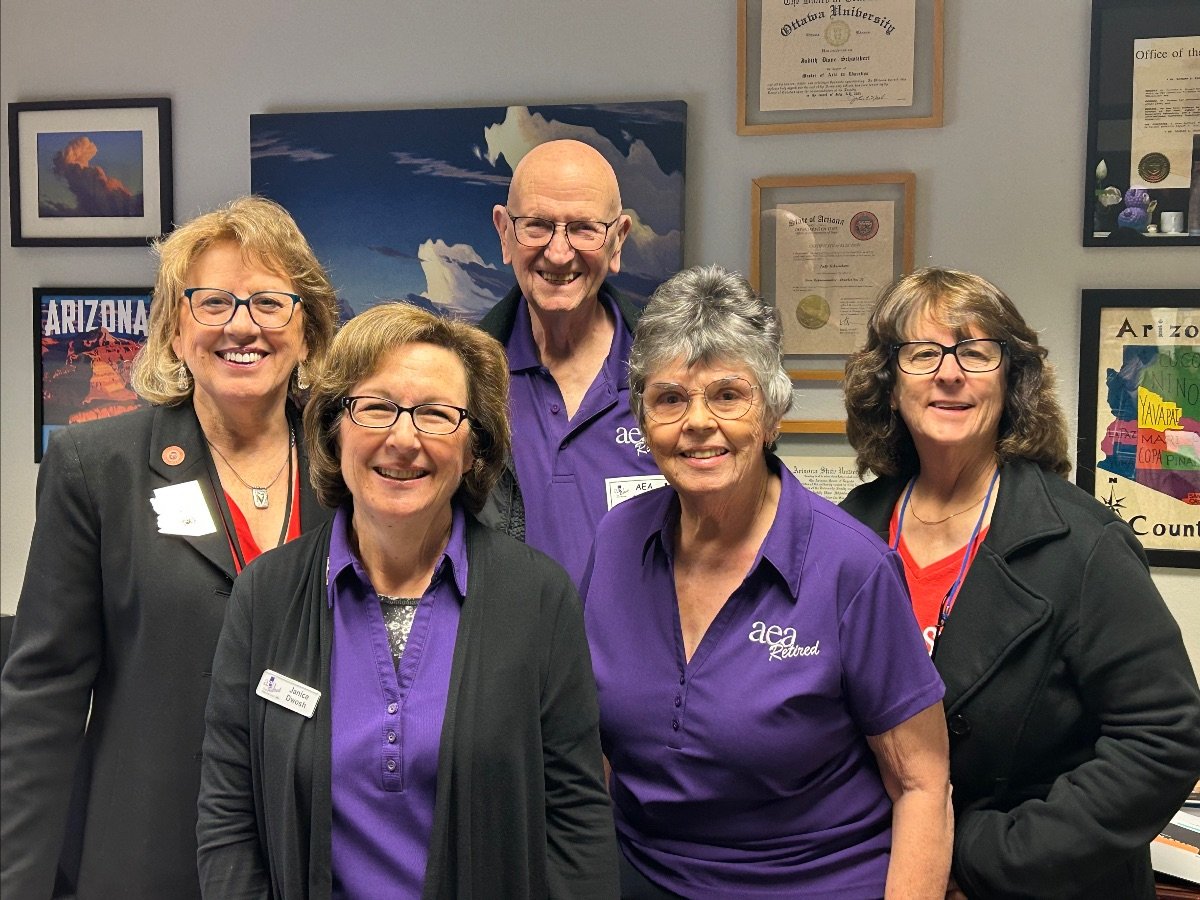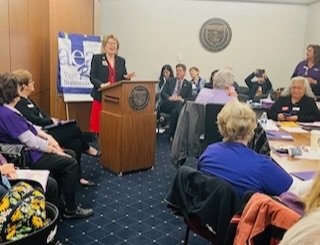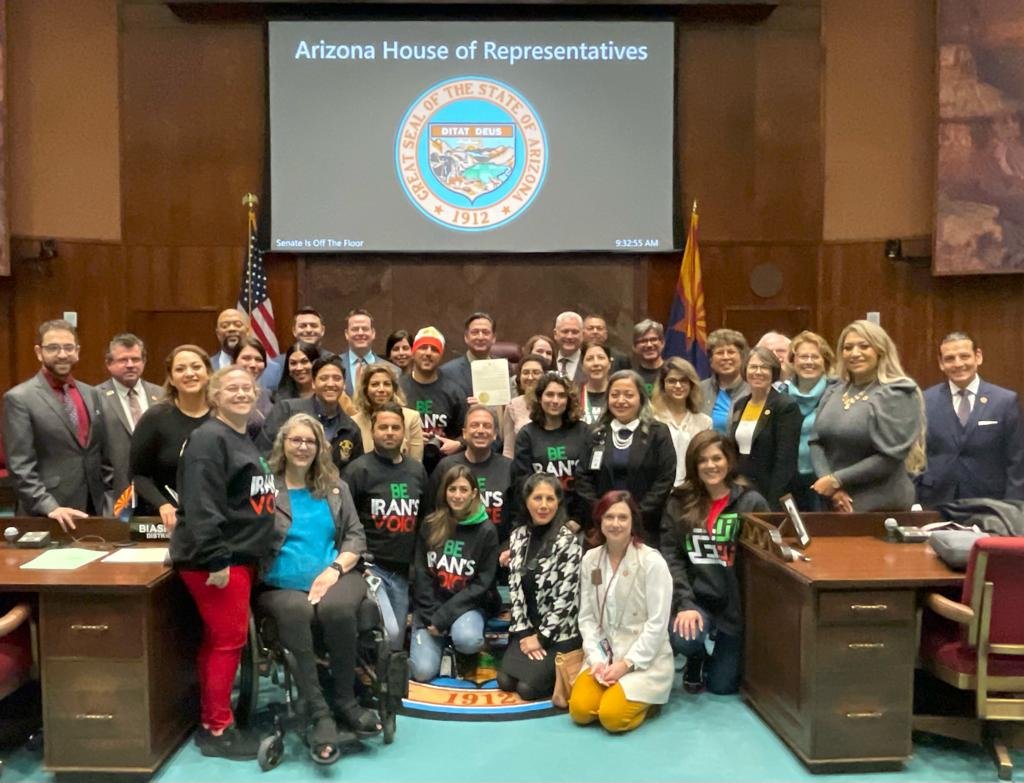Last Week at the Legislature
Monday, January 23, 2023
Keeping You Informed
The Arizona State Legislature is now in session, and the policies we make over the next few months about schools, water, housing, healthcare, and taxes in Arizona will affect all of us. It's my great honor to serve as your representative in the State House. This week I'm focusing on key aspects of Governor Hobbs' budget plan.
If you have questions or comments, feel free to email me at jschwiebert@azleg.gov - or attend our next Zoom Town Hall on Thursday, Jan 26, from 7-8 pm. RSVP here.
Gov Hobbs Executive Budget Proposal
Gov Hobbs budget offers a vision of what anArizona for Everyonelooks like and outlines the governor's priorities for the state. However, both chambers of the legislature will be hard at work to edit this budget and insert their own ideas.
In this newsletter edition, I will focus on K-12 Education since as a longtime teacher, I now serve on the House Education Committee. However, Arizona faces many urgent issues which are addressed in this proposed budget. So, future newsletters will address Health & Welfare, Government That Works, Natural Resources, Corrections, Water, and Public Safety.
Gov. Hobbs plan is focused on rebuilding and reinvesting in our K-12 schools. We have some of the best K-12 schools in the country - but the state has long failed to live up to its obligation to adequately invest fairly in public education in every community, and we see the results of that with high teacher vacancy rates and some districts with crumbling infrastructure.
K-12 Education Highlights
Arizonans have made clear it’s time to rebuild and reinvest in public schools. The Executive Budget prioritizes preparing students for the future and teachers and educators to have the resources they need to teach the workforce of tomorrow. Historic investments from the budget will raise per-pupil spending from $7,999 to $8,250.
The budget provides direct support to targeted student groups that face some of the largest hurdles to their education: students with special needs, and students in high-poverty areas.
The Governor's budget begins with our public school teachers, who continue to be caught in the middle of crises of our own making – and for thousands of them, it’s too much. One in four teachers leave Arizona schools each year, which is the highest rate in the nation. As a result, more than 2,500 classroom educator positions are vacant.
● $1.5 billion savings for taxpayers over 10 years by repealing Empowerment Scholarship Accounts
● $332.2 million deposit in Building Renewal Grant funding to address crumbling and inadequate school infrastructure
● $198.6 million to retain critical education staff, increase the Base Support Level for schools by 3.04 percent
● $172.7 million in new school construction for three schools already in progress, construction of nine new schools, as well as land and site condition projects
● $40 million to expand the Arizona Promise Program and make higher education more accessible for an additional 10,200 students regardless of financial background or resources
● $40 million to establish a new tuition scholarship program for Deferred Action for Childhood Arrival eligible students
● $20.5 million to establish a new Dual Enrollment support and advancement program
● $15 million to address the enrollment increase for the Arizona Teacher’s Academy
● $13 million to provide Free or Reduced Price Lunch at schools in low-income areas
● $10.9 million to adjust District Additional Assistance formulas for inflation and reinforce critical funding for classroom resources such as textbooks, materials, and technology
● $10.3 million in restored STEM and workforce aid funding to Maricopa, Pima, and Pinal Community Colleges
● $14 million to double investment in rural community colleges
● $5 million to support the development of fast and reliable broadband service in schools
$4.4 million to increase the state’s funding to students with a developmental disability, emotional disability, mild intellectual disability, or specific learning disability
$1 million in one-time funding to develop and implement a plan to conduct in-person inspections of school facilities
ESA Repeal Background:
● FY24 budget will repeal the universal expansion of Empowerment Scholarship Accounts – saving Arizona taxpayers an estimated $1.5 billion over the next 10 years.
● The program will be returned to its status prior to the 2022 Legislative Session, helping students with disabilities and special needs access education that best fits their needs.
● Estimated 26,500 students enrolled in the universal voucher program.
Last year's last-minute bill creating a universal voucher program estimated it would cost taxpayers $34 Million but was not included in the budget. That cost has now ballooned to well over $200 million and rising, threatening to bankrupt the state.
The Arizona Department of Education reported that 75 percent of universal voucher recipients were not previously enrolled in public schools. The other 25 percent mostly come from districts that do not receive state K-12 funding as a result of high property tax revenues
Students would lose their eligibility based on the effective date of bill. This is typically 90 days after session adjourns. This likely means students will continue to be funded for the school year.
The universal expansion of the Empowerment Scholarship Account is now funding private school children that were never enrolled in public schools. These students would never have been funded, thus stripping schools of funding.
Not all district schools receive state funding. For example, if a student from the Scottsdale Unified School District – which does not receive state funds – now has an ESA, they are taking funds from state-funded schools and funding private schooling. Those are not the students that are in need.
The Executive Budget also redirects the $68.6 million designated for Results-Based Funding and an additional $130 million in savings from the repeal of universal ESAs into the Base Support Level for Arizona schools, devoting that funding toward resources necessary to retain critical education staff and increasing the Base Support Level for schools by 3.04%.
With this year’s budget, per-pupil funding is expected to increase from $7,999 to $17,322
Bills I'm Working On Now
In addition to the legislation I introduced last week - and the many education bills I've co-sponsored, Arizona State House members have until February 6 to submit up to seven additional bills. I have all of those slots filled with these projects to
Stop out-of-state investors from forcing Arizonans who own condos out of their homes
Allow Arizonans the first right of refusal on bidding on foreclosed properties that out-of-state investors often gobble up.
Save lives by requiring insurance companies and Medicaid to cover genetic mutation screenings before a cancer diagnosis so people can choose preventative measures.
Require greater ESA accountability and transparency
Address the silver tsunami of homelessness by investing in regional senior affordable housing in the North Valley.
Crack down on rampant abuses and neglect in long-term care facilities that the Auditor General has documented.
Recognize the Assyrian New Year celebrated by many of our Assyrian American neighbors across the state.
This Week I Was Happy to Meet With Many People including...
(Clockwise from Top Left) Foreign Exchange Students Rene, Francisco, Nele, and their chaperone Jill; Fellow retired teachers from LD2; Retired teachers from across the state; and Iranian immigrants who members of the entire State House were happy to stand with them in support of "Zan, Zendegi, Azadi" or "Woman! Life! Freedom" ! in Iran.
Great Sources
Ever feel like you're not hearing about news from the legislature that is affecting you? Here are some great sources. Check them out!
Civic Engagement Beyond Voting's "The Weekly". Last year lawmakers introduced over 1,700 bills. The sheer volume of information can be overwhelming. That's why founding editor Melinda Merkel Iyer created the CEBV Weekly, a condensed, easy-to-follow overview that highlights notable bills each session. Sign up here to get her updates by email every Sunday morning during the session.
The Arizona Mirror is also one of my favorite online publications. It's an independent, nonprofit news organization working to connect public policy with the people it affects.
